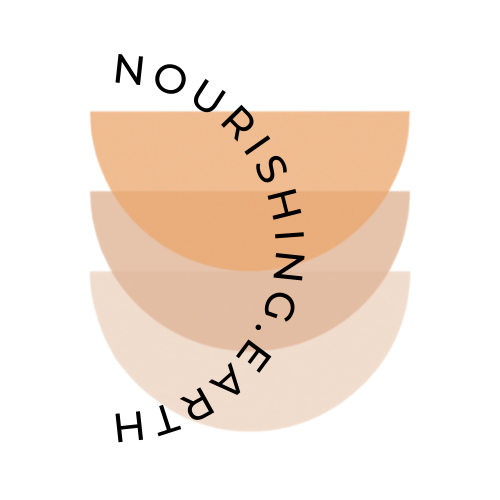Synthetic Fragrances: How They Harm Your Health and Why You Should Swap Them for Natural Scents
Introduction
Synthetic fragrances have become ubiquitous in our modern world. They are present in many of the products we use on a daily basis, from perfumes and colognes to household cleaners and laundry detergents. However, what many people don't realize is that synthetic fragrances can have a negative impact on our health, acting as endocrine disruptors and contributing to a range of health issues. In this article, we'll explore what endocrine disruptors are, how synthetic fragrances affect our health, and what healthier alternatives we can use to avoid these harmful chemicals.
What are Endocrine Disruptors?
Endocrine disruptors are chemicals that interfere with the normal function of hormones in the body. Hormones are responsible for regulating a wide range of bodily processes, from growth and development to metabolism and reproductive function. Endocrine disruptors can mimic, block, or interfere with hormones in the body, leading to a range of health problems.
Some of the health problems that can result from exposure to endocrine disruptors include:
Reproductive disorders
Birth defects
Developmental delays
Hormone-dependent cancers (such as breast and prostate cancer)
Neurological disorders
Functional Medicine and Nutritional Therapy Perspectives on Endocrine Disruptors
From a functional medicine perspective, endocrine disruptors are viewed as a major contributor to chronic disease. Functional medicine practitioners believe that many of the chronic health conditions that people experience today, such as obesity, diabetes, and autoimmune diseases, are the result of a combination of genetic, environmental, and lifestyle factors. Endocrine disruptors are one of the environmental factors that can contribute to chronic disease by disrupting the delicate balance of hormones in the body.
How Synthetic Fragrances Affect Our Health
Synthetic fragrances are one of the most common sources of endocrine disruptors in our environment. They are used in a wide range of products, including:
Perfumes and colognes
Air fresheners
Cleaning products
Laundry detergents
Personal care products (such as shampoo, soap, and lotion)
Candles
Many of the chemicals used to create synthetic fragrances are known endocrine disruptors. For example, phthalates are a type of chemical commonly used in fragrances that have been linked to reproductive and developmental problems. They have also been linked to obesity and insulin resistance in adults.
In addition to phthalates, many other chemicals commonly used in synthetic fragrances have been linked to health problems. For example, benzene is a known carcinogen that is often found in fragrances. Formaldehyde, another common fragrance ingredient, is a potent allergen that can cause respiratory problems.
Healthy Alternatives to Synthetic Fragrances
If you're concerned about the health risks associated with synthetic fragrances, there are plenty of healthier alternatives you can use instead. Some options include:
Essential oils: Essential oils are natural fragrances that are derived from plants. They can be used in a wide range of products, from perfume and cologne to cleaning products and air fresheners. Some popular essential oils include lavender, peppermint, and lemon.
Unscented products: Many products, such as laundry detergents and personal care products, are available in unscented versions. By choosing unscented products, you can avoid exposure to synthetic fragrances.
DIY products: Another option is to make your own products using natural ingredients. There are many recipes available online for everything from homemade cleaning products to DIY perfume.
It's important to note that just because a product is labeled as "natural" or "organic" doesn't necessarily mean it's free of synthetic fragrances. Always read the ingredient labels carefully and look for products that are certified as fragrance-free or that use only natural fragrances.
Conclusion
Synthetic fragrances may smell nice, but they come with a host of health risks, acting as endocrine disruptors and contributing to a range of health problems. By avoiding synthetic fragrances and opting for healthier alternatives, such as essential oils or unscented products, we can help to promote optimal health and reduce the risk of chronic disease. If you're concerned about the health risks associated with synthetic fragrances, take the time to read ingredient labels carefully and make informed choices about the products you use.
References:
Hormone Health Network. Endocrine Disruptors. https://www.hormone.org/your-health-and-hormones/endocrine-disruptors
Environmental Protection Agency. Endocrine Disruptors. https://www.epa.gov/endocrine-disruption
Kavlock RJ, Daston GP, DeRosa C, et al. Research needs for the risk assessment of health and environmental effects of endocrine disruptors: a report of the U.S. EPA-sponsored workshop. Environ Health Perspect. 1996;104 Suppl 4:715-740.
Boberg J, Christiansen S, Axelstad M, et al. Reproductive and behavioral effects of diisononyl phthalate (DINP) in perinatally exposed rats. Reprod Toxicol. 2011;31(2):200-209.
Hauser R, Calafat AM. Phthalates and human health. Occup Environ Med. 2005;62(11):806-818.
Environmental Working Group. Fragrance. https://www.ewg.org/skindeep/ingredient/702512/FRAGRANCE/
National Toxicology Program. Report on Carcinogens, Fourteenth Edition. https://ntp.niehs.nih.gov/whatwestudy/assessments/cancer/roc/index.html
Rastogi SC, Schouten A, de Kruijf N, Weijland JW. Fragrance material review on benzene derivatives. Food Chem Toxicol. 2001;39(3):267-282.
Steinemann AC. Fragranced consumer products: exposures and effects from emissions. Air Qual Atmos Health. 2016;9(8):861-866.
Environmental Working Group. Guide to Healthy Cleaning. https://www.ewg.org/guides/cleaners/

